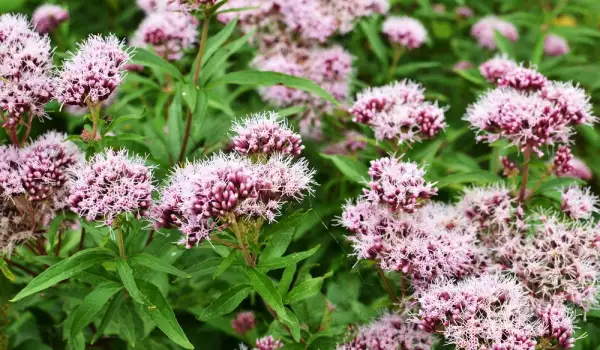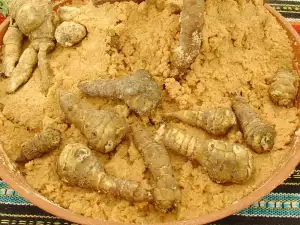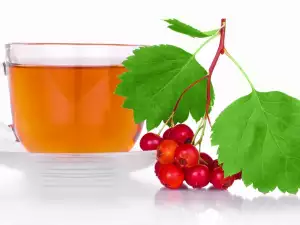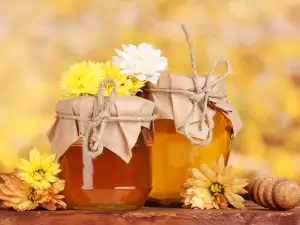Valerian / Valeriana officinalis / is a herbaceous perennial plant of the Valerianaceae family. It has a straight stem, ribbed length-wise and cylindrical, with a height of up to 5 ft (1.5-2 meters). The leaves are pale pink, and the fruit resembles an ovoid walnut, with a light brown color and a parachute.
The rhizome is short and thick, and its base has numerous bundles of thick roots. The colors of valerian are white and purple, gathered in the thyroid inflorescences. The blooming period is from early spring until May-August.

Valerian has been used as a medicinal herb since ancient times, the earliest evidence of which is from Ancient Greece and Rome. Hippocrates first described its properties and later Galen recommended it as a cure for insomnia. In Sweden in the Middle Ages, it was put in the clothes of the groom to ward off evil elves.
Composition of Valerian
The herb contains borneol, camphene, lemon, isovaleric acid. It comprises from 0.1 to 2% essential oil.
Collection and storage of Valerian
The species is not protected by the Biological Diversity Act, but in 2012 the collection of valerian as a natural herb for industrial and commercial needs was banned. Detergents containing valerian can be purchased from pharmacies and specialized stores. For therapeutic purposes, use valerian root.
Benefits of Valerian
The roots of valerian have a calming, soporific effect for those with insomnia. Valerian is used for mental and nervous exhaustion, hyperactivity, neuroses and heart palpitations caused by stress.
It is used for the treatment of epilepsy, but in combination with other herbs. Valerian has an excellent balancing effect – during fatigue, it helps to mobilize the nervous system, while during hyperactivity it increases the withholding processes in the brain. Has a calming effect on the central nervous system.
Besides various nervous conditions, valerian is used for throat problems and painful menstruation, climacteric disorders, hysteria, migraines. It decreases spasms of smooth muscles and regulates heart functions.
It is used in early stages of hypertension, during spasms of the gastrointestinal tract, biliary tract and others. Valerian calms acute agitation as a result of mental trauma. There is a beneficial healing effect for impaired coronary circulation, it soothes the pulse.

Traditional medicine using Valerian
Aqueous extract of valerian is made when 1 tablespoon of chopped roots are soaked in 1 cup of water for 24 hours, then strained. The aqueous extract is used for inhalations in conditions caused by neurological disorders.
Inhalation of valerian has a very good sedative effect, it normalizes heart function and increases self-esteem.
Massages with essential valerian oil is recommended for gastrointestinal spasms due to nerve problems. Baths with a decoction of valerian roots help calm nerves for those with neuroses, acting as a sedative without having the negative side effects of sleeping pills.
In the form of tincture, valerian is used for treatment of restless legs syndrome. This is a condition in which a person feels the need to constantly move their legs to stop cramping. The unpleasant symptoms usually intensify at night.
People in phytocosmetics recommend the use of valerian oil for skin sensitivity. Take a rhizome, cut it into small pieces and pack it into a bottle of 4/5 cup (200 ml) all the way to the top, pour olive oil in and seal well.
The bottle must be stored for two weeks in a sunny spot. After this period, the skin is treated using the resulting oil extract.
Dangers of Valerian
Valerian as a whole has been tested as a remedy with no side effects, its application requires caution in individuals with hypersensitivity. Prolonged use or overdose, causes symptoms such as drowsiness, dizziness, increased blood clotting and digestive problems.




















